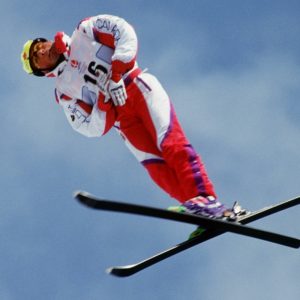 Implicit memory controls all of your skills and talents. Public speaking, dancing and playing baseball are practiced skills. Reading about them improves your semantic knowledge but at some point you have to apply what you know. Implicit memory is all about doing.
Implicit memory controls all of your skills and talents. Public speaking, dancing and playing baseball are practiced skills. Reading about them improves your semantic knowledge but at some point you have to apply what you know. Implicit memory is all about doing.
The only way the brain is like a muscle is the classic warning: If don’t use it, you’ll lose it. The brain is like an energy-saving supercomputer. It uses as much of its systems as needed but shuts down functions that aren’t being used.
You don’t have to do mental calisthenics or intellectual barbells. You just have to use it.
This is particularly true of implicit memory. We’ve already looked at the episodic and semantic memory systems. They hold memories for experiences we’ve had and for the knowledge we have gained. Together they are called declarative memory, because we can declare (articulate) our knowledge and experiences. In contrast, implicit memory is what we can do, even if we can’t explain it.
Ever pushed someone aside from a keyboard and said “here let me show you”? Or have you ever tried to remember a passcode you always type in on a number keypad but can’t verbalize it. You end up tapping at an a table top as if it was a keypad. You can do it but you can’t say it.
Riding a bike is easy once you’ve learned it but difficult to explain to someone else. It’s easy to perform on a musical instrument but hard to explain how you do it. In sports, the best coaches aren’t the ones who were the best players but the ones you can explain how you can be a better player.
Implicit memory is all about doing.
We gradually add to our implicit memory. The more we practice, the better we are able to do it. And we forget gradually too. Every day you doing play the piano or ride a bicycle, the worse you’ll be at it. But it is a gradual loss. Each day is a little worse.
 Implicit memory doesn’t have the quick learning you can get from semantic memory but it doesn’t lose it quickly either. You can quickly learn a list of words but you will quickly forget them. You will slowly learn for to dance but you will slowly forget it too.
Implicit memory doesn’t have the quick learning you can get from semantic memory but it doesn’t lose it quickly either. You can quickly learn a list of words but you will quickly forget them. You will slowly learn for to dance but you will slowly forget it too.
The best way to improve your implicit memory is to practice. The ideal amount of practice to get the greatest results for the least amount of work is 1 hour a day. Want to be a drummer? Practice an hour a day. Want to be a painter. Practice an hour a day. Every day.
Progress will be gradual but the ability will stay with you for a long time. All your brain asks is a hour a day.